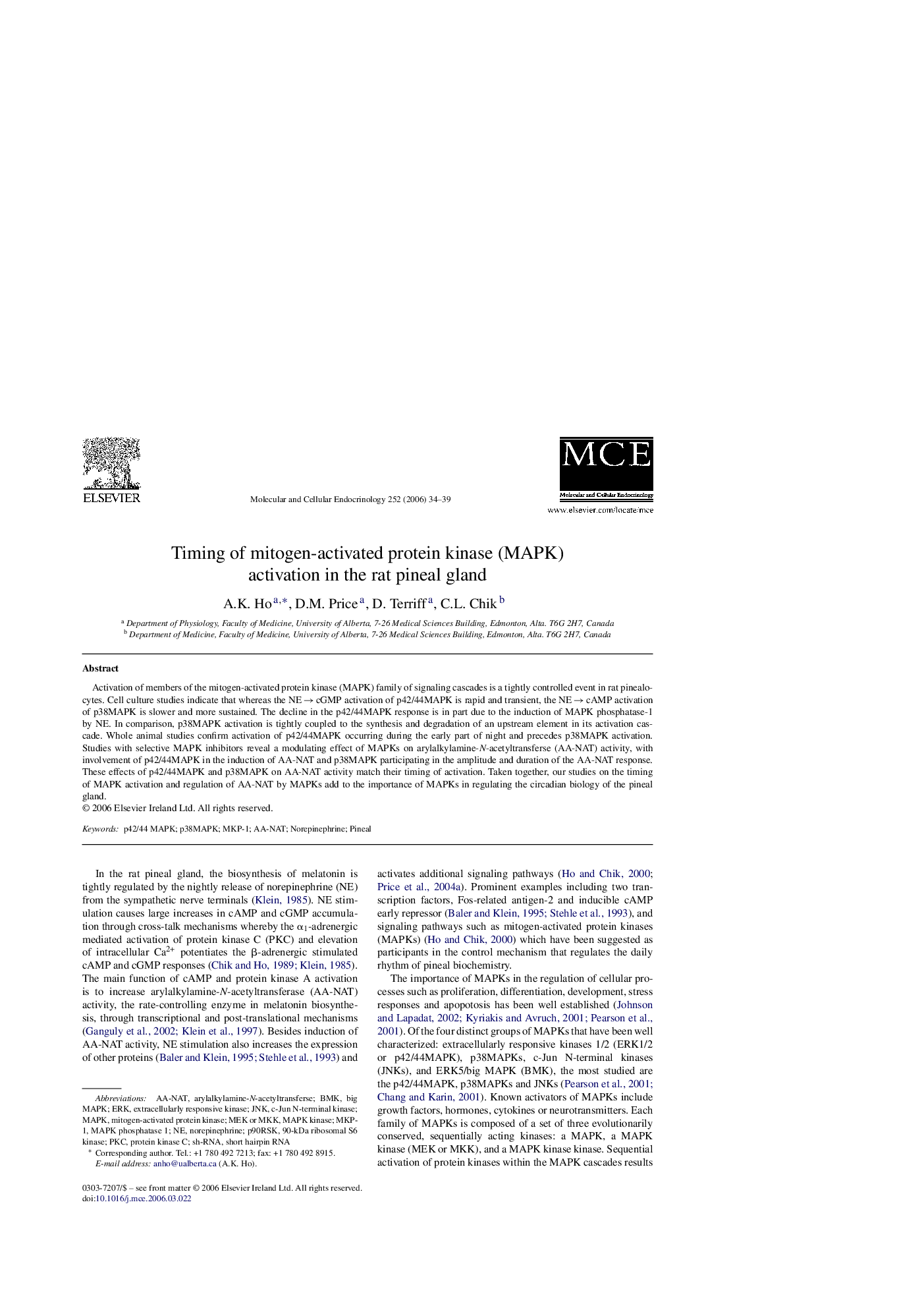| Article ID | Journal | Published Year | Pages | File Type |
|---|---|---|---|---|
| 2198201 | Molecular and Cellular Endocrinology | 2006 | 6 Pages |
Activation of members of the mitogen-activated protein kinase (MAPK) family of signaling cascades is a tightly controlled event in rat pinealocytes. Cell culture studies indicate that whereas the NE → cGMP activation of p42/44MAPK is rapid and transient, the NE → cAMP activation of p38MAPK is slower and more sustained. The decline in the p42/44MAPK response is in part due to the induction of MAPK phosphatase-1 by NE. In comparison, p38MAPK activation is tightly coupled to the synthesis and degradation of an upstream element in its activation cascade. Whole animal studies confirm activation of p42/44MAPK occurring during the early part of night and precedes p38MAPK activation. Studies with selective MAPK inhibitors reveal a modulating effect of MAPKs on arylalkylamine-N-acetyltransferse (AA-NAT) activity, with involvement of p42/44MAPK in the induction of AA-NAT and p38MAPK participating in the amplitude and duration of the AA-NAT response. These effects of p42/44MAPK and p38MAPK on AA-NAT activity match their timing of activation. Taken together, our studies on the timing of MAPK activation and regulation of AA-NAT by MAPKs add to the importance of MAPKs in regulating the circadian biology of the pineal gland.
